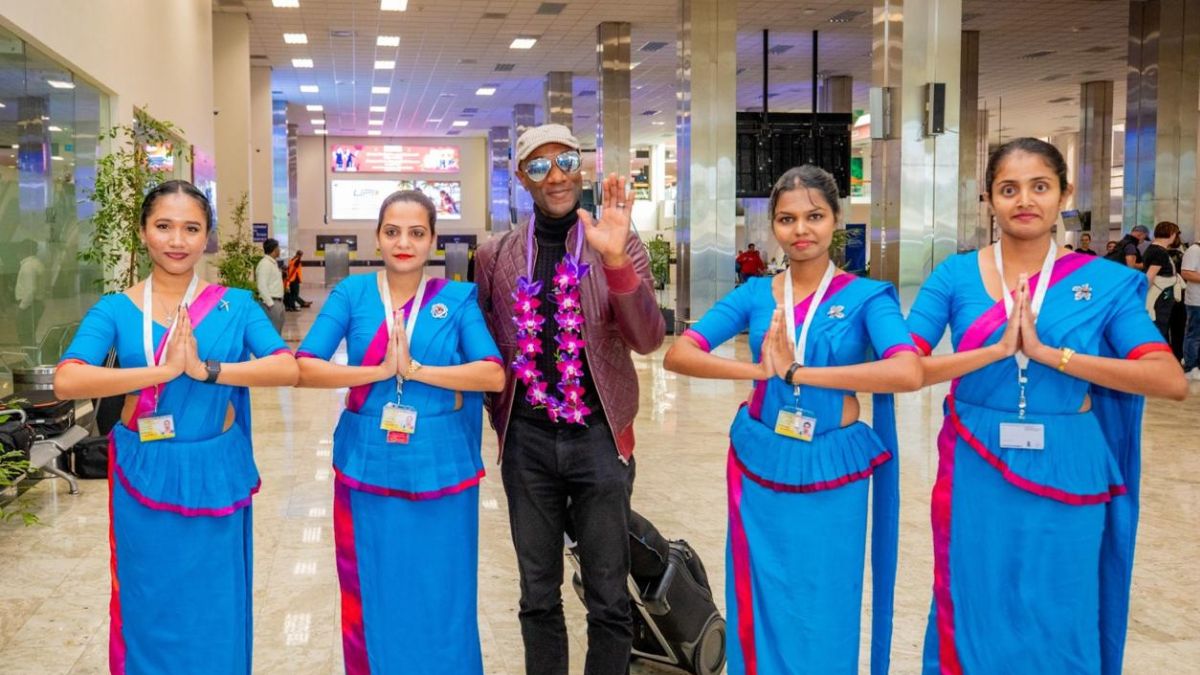Two members of K-pop powerhouse BTS have completed their mandatory military service, prompting fan frenzy and anticipation for their comeback.
RM and V greeted fans with salutes and a saxophone performance after being discharged on Tuesday. V asked fans to “wait just a little longer” for BTS to reunite.
All seven members are set to finish their military service by the end of this month and their agency Hybe had hinted at a reunion. They went on hiatus in 2022 at the height of their global fame.
Hundreds of fans, some whom flew in from overseas, gathered in front of Hybe’s headquarters in central Seoul to celebrate RM’s and V’s return on Tuesday.
Many of them were dressed in purple, BTS’ signature colour, and carried large banners and photographs of the two K-pop idols.
South Korea requires all able-bodied men aged 18 to 28 to serve for about two years in the military so the country can be ready to fight the North.
On Tuesday, Hybe displayed a banner saying “We are back”, along with the official logos of BTS and ARMY – an acronym for the band’s fan group, which stands for Adorable Representative MC for Youth – on its building.
“This feels incredible. To be here in Seoul, to see the place where BTS grew up and started singing and dancing. It’s amazing,” Janya, who flew in from the UK, told The Korea Herald.
“I want to say to RM and V that you are a massive inspiration, and I love you so much!” the 28-year-old said.
“It’s been a long, long time without you. I’m so glad you’re back and finally free to do whatever you want to do,” said Ivory from Australia.
Hannah Chung, who lives in London, told AFP news agency that she planned her trip two years ago “because I knew the members will be out by then”.
She is counting on a chance to see the band at the annual BTS Festa, a celebration of the band’s debut, that will take place on Friday.
Earlier during their discharge in Chuncheon, RM thanked fans for waiting for them to complete their national duties.
“Now, I’m ready to hit the ground running again as RM of BTS. Thank you to everyone who waited and looked after us,” he said.
V said the military tenure was a “time for me to reset both physically and mentally”.
“I really want to run to ARMY as soon as I can. Thank you for waiting for us during our military service,” he said.
The septet debuted in 2013, but it wasn’t until 2017 when a highly successful US tour propelled their blend of pop, hip-hop and R&B – mostly in Korean – onto the global stage.
Since then, they have become the most-streamed group on Spotify, the first K-pop act to top the US iTunes chart and several Billboard charts, and one of the most awarded groups in history.
The band’s name is short for Bangtan Boys, or “Bulletproof Boy Scouts” in Korean.
BTS has actively advocated for youth issues, including through a mental health initiative with Unicef.
It has also addressed the United Nations General Assembly and met with former US President Joe Biden to discuss the rise in anti-Asian hate crimes.
The band had previously won a deferral – when in 2020, the nation’s parliament passed a bill allowing them to delay their duties until the age of 30.
In 2022, the oldest member of the group, Jin, enlisted, and the others followed suit.
(BBC News)

